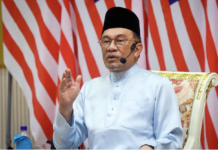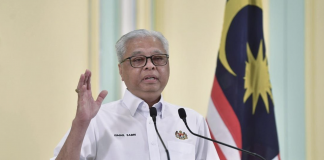Kuala Lumpur OCT 29 — YANG di-Pertuan Agong Al-Sultan Abdullah Ri’ayatuddin Al-Mustafa Billah Shah can advise lawmakers to support Budget 2021, but it is ultimately up to them to decide, said analysts and a constitutional lawyer.
They believed those from the opposition need to play an effective check and balance role in scrutinising how taxpayers’ monies will be utilised.
Dr Oh Ei Sun, a senior fellow at the Singapore Institute of International Affairs, said it was the Agong’s duty to advise politicians on what is right for the country to move forward, but it was not an order.
“The king is exercising his rights under the Westminster parliamentary tradition that the country is following – to advise, encourage and warn. It is then up to the parliamentarians to consider to what extent they would heed the advice,” Oh told The Malaysian Insight.
Sultan Abdullah, in a statement yesterday, advised all MPs to support the budget in light of the Covid-19 pandemic, as there is an urgent need for medical supplies, and front-liners also needing extra funds.
However, lawmakers might vote down the budget, to be tabled on November 6, if it does not reflect what the people want during the pandemic.
A rejection of the budget could be treated as a sign of no-confidence against Prime Minister Muhyiddin Yassin.
Muhyiddin and his cabinet last week sought emergency rule to better fight the pandemic, but this was rejected by the king, on grounds that the administration was already doing well to contain the pandemic.
Constitutional lawyer Lim Wei Jiet said if a lawmaker felt the budget was not adequate to service his constituency, he might vote against it as his primary role was to serve constituents.
“Ultimately, an MP has to be accountable and answerable to his constituents and his duty to uphold the constitution. Lawmakers should vote based on those considerations,” Lim said.
The Muda party co-founder added if there was any superfluous spending by the government, it would also be a point of contention for the opposition.
“If the government tables a budget with a lot of shortcomings or allocates a huge amount of money to a redundant ministry, I think the opposition has a right to voice their concern and vote against such a budget,” Lim said.
Universiti Utara Malaysia analyst Mohd Azizuddin Mohd Sani said the opposition should look at ways of improving the budget if it is not up to par.
“The Agong also mentioned that the processes of check and balance should be there in order to uphold our democracy.
“This means the opposition should play its part to debate and improve the budget. It is not an issue of just passing it,” he told The Malaysian Insight.
Opposition demands
Opposition parties, including DAP, have called for bipartisanship for the budget, but with terms and conditions, including equal constituency allocations and an extension of the moratorium for bank loans.
Analysts believed if Muhyiddin wants to offer an olive branch, he would allow the requests and even form a bipartisanship committee to look into the budget.
“I think the opposition would demand the government discuss with them in a bipartisan fashion, so that all can agree on a budget that best addresses the financial predicament we are in. And there is nothing wrong in that,” Lim said.
Universiti Malaya’s Prof Dr Awang Azman Awang Pawi said the opposition might have its set of demands but would not likely be entertained by the executive.
“The opposition can make requests, such as more allocations for their constituency, moratorium extension and all, but not all their demands will be entertained by the prime minister as he has absolute power,” he told The Malaysian Insight.
Azizuddin said if the government feels there are demands that are feasible, they would meet them as it would create a good perception of PN.
“It is normal for the opposition to demand things but it is subject to the ability of the government to deliver as well. If the government sees they can afford to deliver things like a moratorium extension, they will do that,” he said.
Political analysts, however, said it will be ironic for Muhyiddin to urge all parties to support the budget, which is construed as a vote of confidence, when there are more than 16 motions of no-confidence against him, as revealed by Dewan Rakyat Speaker Azhar Azizan Harun.
Five lawmakers from Dr Mahathir Mohamad’s Pejuang party filed their motions of no-confidence against Muhyiddin, saying he had lost the confidence of the House. This was followed by 11 Amanah lawmakers.
“There are MPs who support the budget but at the same time there are MPs who reject the prime minister. These are two different things in the parliamentary democracy based on the reality of current sentiments,” Awang Azman said.
Oh added Muhyiddin might have wriggled his way out to pass the budget but he might not be so lucky when it comes to the motion of no-confidence against him.
“Muhyiddin will try his best to employ various tactics to prolong his political survival. The real threat for Muhyiddin is that the budget bill is conventionally construed as a vote of no-confidence, hence is a potent political tool against him,” Oh added. –The Malaysian Insight.
















